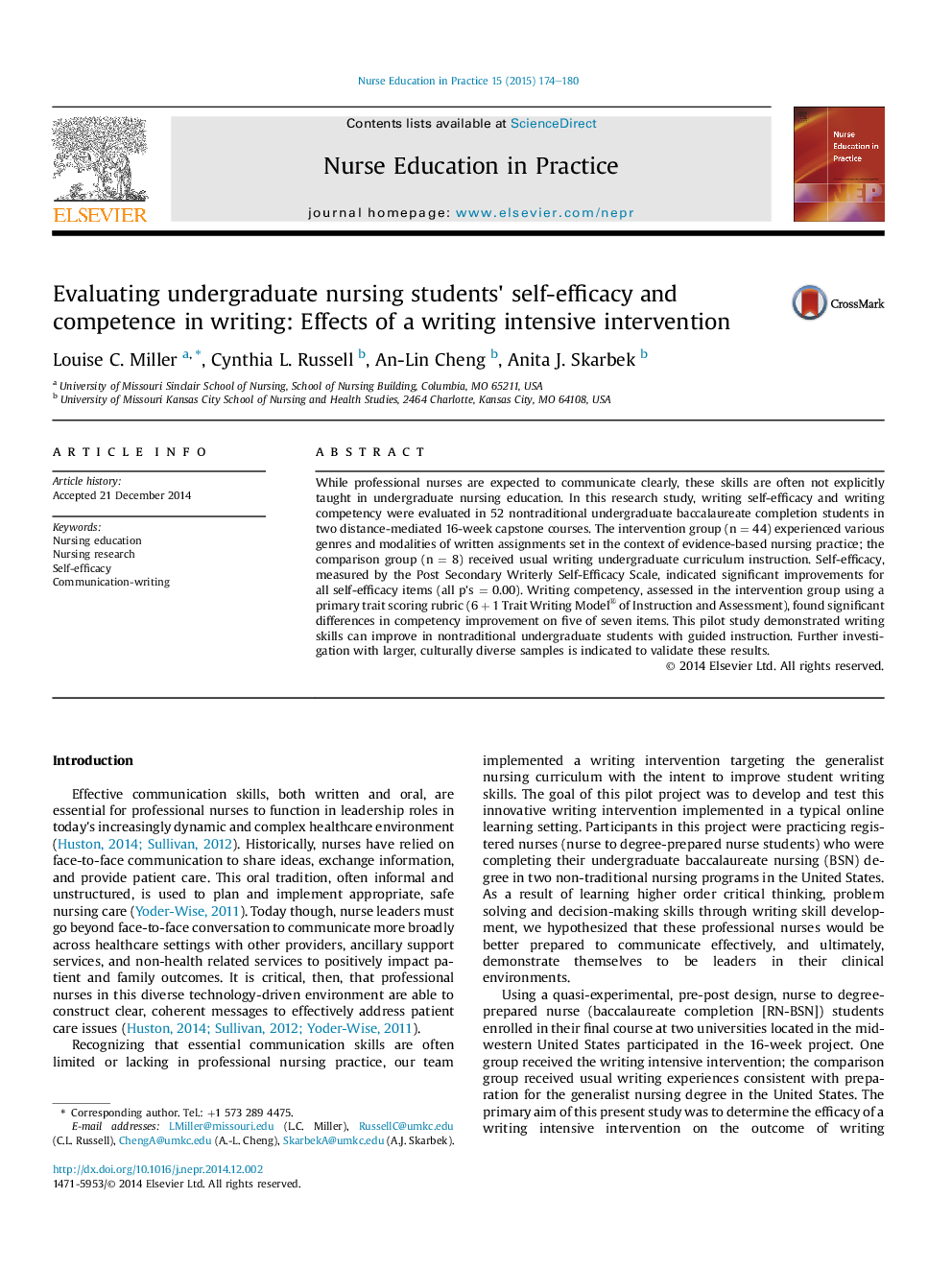| Article ID | Journal | Published Year | Pages | File Type |
|---|---|---|---|---|
| 366696 | Nurse Education in Practice | 2015 | 7 Pages |
•Competence in writing has been shown to correlate with ability to think critically.•Writing skills should be emphasized, not de-emphasized, in basic nursing education.•Scaffolded writing tasks are recommended to improve nursing students' writing skills.•Writing confidence can improve when repeated practice in writing tasks is provided.
While professional nurses are expected to communicate clearly, these skills are often not explicitly taught in undergraduate nursing education. In this research study, writing self-efficacy and writing competency were evaluated in 52 nontraditional undergraduate baccalaureate completion students in two distance-mediated 16-week capstone courses. The intervention group (n = 44) experienced various genres and modalities of written assignments set in the context of evidence-based nursing practice; the comparison group (n = 8) received usual writing undergraduate curriculum instruction. Self-efficacy, measured by the Post Secondary Writerly Self-Efficacy Scale, indicated significant improvements for all self-efficacy items (all p's = 0.00). Writing competency, assessed in the intervention group using a primary trait scoring rubric (6 + 1 Trait Writing Model® of Instruction and Assessment), found significant differences in competency improvement on five of seven items. This pilot study demonstrated writing skills can improve in nontraditional undergraduate students with guided instruction. Further investigation with larger, culturally diverse samples is indicated to validate these results.
